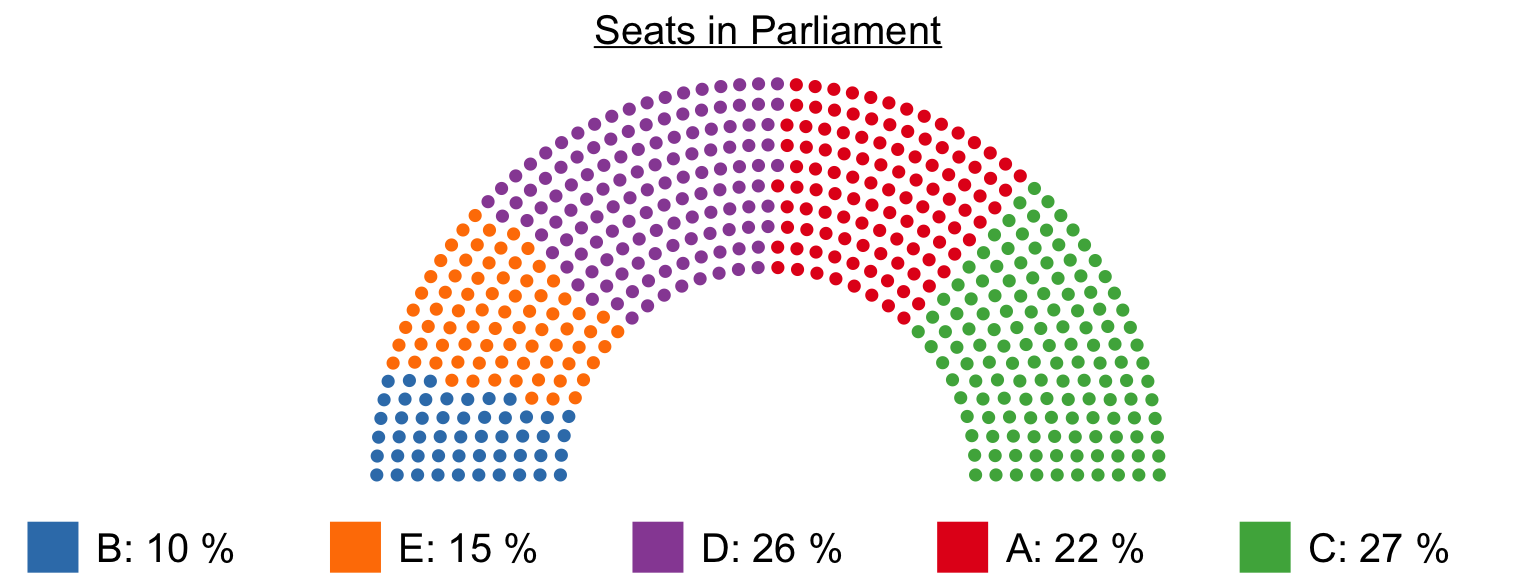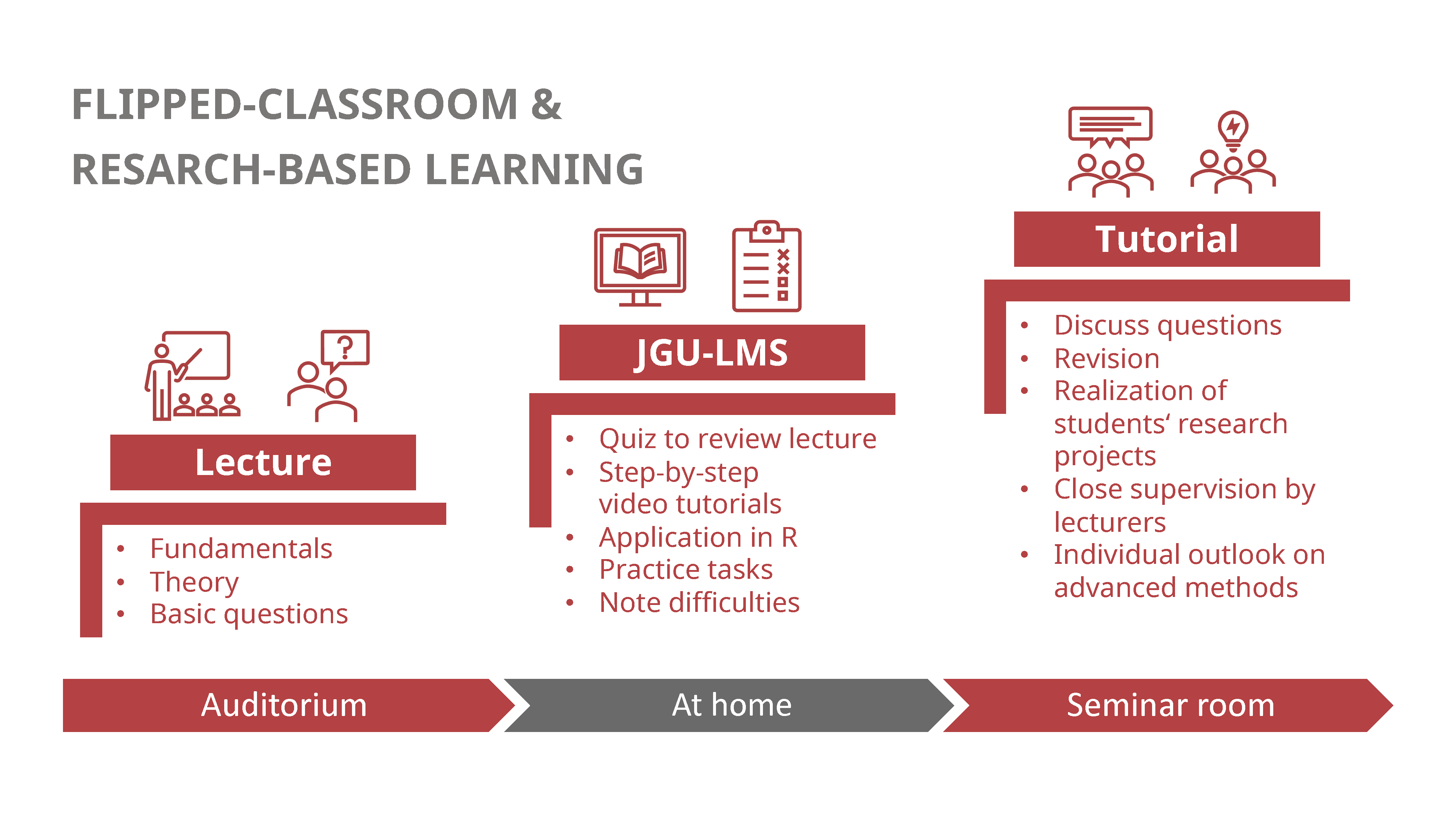
Teaching
Coalitions in Comparative Perspective
For my course on ‘Coalitions in Comparative Perspective’ I prepared a Shiny App which randomly draws party positions and seat distributions to illustrate different scenarios of coalition bargaining and how the number of parliamentary parties, the dimensionality of political competition, and the status quo affect it. To illustrate the consequences of parties’ office and/or policy goals (after reading Strøm and Müller 1999), I thought of a little simulation game to play with the students, in which they take on the role of politicians and have to negotiate a coalition agreement based on the results provided by the app. In my perception, party goals and their consequences for coalition politics were well understood afterwards.
Feel free to use the materials.1 I’d be happy to hear about any experiences or further adjustments made.
Instructions for the game can be found here.

Quantitative Methods
In response to the challenges posed by the COVID-19 pandemic, we (at the unit for Empirical Political Science) undertook a transformative teaching project: We moved away from traditional lecture-style teaching and textbook-based calculation exercises to a dynamic flipped classroom approach. Our primary aim is to equip students not only with basic computational and software skills, but also with a integral understanding of the research process: from research question to the communication of findings. In this way, students no longer learn from exercises set by lecturers, but by applying the new methods in small groups to research projects of their own choosing. The instructors act as advisors to the research projects and can provide individual assistance as well as outlooks on advanced methods. We think that such an approach encourages active student engagement and fosters a deeper understanding of the practical applications of methods in research contexts. The illustration below shows a typical working week for our students. Our project was funded by the Gutenberg Teaching Council at Johannes Gutenberg University Mainz.

Courses taught
Statistics I, yearly multiple courses since 2019 (overall 13),
Statistics II, yearly multiple courses since 2019 (overall 7),
Introduction to GLM, Summer 2020
Coalitions in Comparative Perspective, Summer 2022
References
Footnotes
It is licensed under CC BY-NC 4.0.↩︎